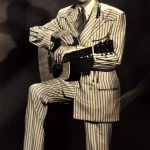“𝙔𝙤𝙪 𝘿𝙤𝙣’𝙩 𝙊𝙬𝙣 𝙈𝙚” – 𝙇𝙚𝙨𝙡𝙚𝙮 𝙂𝙤𝙧𝙚dx

“You Don’t Own Me” is a groundbreaking song by Lesley Gore, released in 1963. Here’s a detailed look at this iconic track:
Overview
- Artist: Lesley Gore
- Single Release: September 1963
- Album: I’ll Cry If I Want To (1963)
- Genre: Pop, Girl Group
- Length: 2:31
“You Don’t Own Me” features a rich pop production with lush orchestration and a strong vocal performance by Lesley Gore. The song is characterized by its dramatic delivery, with Gore’s powerful and emotional vocals taking center stage. The arrangement includes a prominent string section and a restrained but effective rhythm section that supports the song’s assertive message.
The lyrics of “You Don’t Own Me” express a strong message of independence and self-empowerment. The song’s narrator firmly asserts her autonomy and refusal to be controlled by someone else, with lines such as “You don’t own me, don’t try to change me in any way.” The song’s empowering message was particularly progressive for its time, addressing themes of personal freedom and equality in relationships.

“You Don’t Own Me” was a significant hit for Lesley Gore, reaching No. 2 on the Billboard Hot 100 chart. The song’s powerful message and Gore’s standout performance made it a memorable and influential track in the early 1960s pop music scene. The song has been praised for its early feminist undertones and its role in paving the way for more assertive female voices in popular music.
The song was written by John Madara and David White, and it was produced by Quincy Jones. “You Don’t Own Me” is often cited as one of the first pop songs to address issues of female empowerment and self-determination, making it a landmark in the genre. Lesley Gore’s performance in the song is noted for its emotional depth and conviction, which helped to elevate the track’s impact.
“You Don’t Own Me” remains a classic and influential song, frequently included in compilations of 1960s pop and girl group music. Its empowering message continues to resonate with audiences, and the song is often celebrated for its role in advocating for personal independence and equality. The track has been covered by various artists over the years, and its legacy endures as a significant piece of musical history.
Video:











